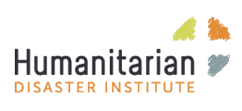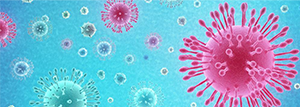
Coping and Caring for Oneself During COVID-19: Practical Steps for Nurse Leaders
Breadcrumb
COVID-19 brings forth a new level of stress and uncertainty to the world and health care. To care for others well during this season of COVID-19 will require us to learn how to care for ourselves at the same time.
Here are some practical steps you can take to ensure that you are properly attending to your own needs so that you can in turn sustainably attend to the needs of others:
The World Health Organization suggests staying informed but avoiding overexposure to news that might cause you to feel anxious or distressed. Take reasonable and well-informed measures to ensure your own safety and your loved ones.
You can’t cope with an emotion or a problem that you are unwilling to accept that you have. “I shouldn’t feel anxious or tired or overwhelmed because my circumstances aren’t as dire as others” is the language of denial. Others can have legitimate needs AND you can have legitimate needs both at the same time.
It is entirely human to seek out certainty and any semblance of control in the midst of a disorienting and rapidly changing environment. Some of us compensate through vigilant and meticulous micromanagement (which will often lead to angry outbursts at the slightest derailment) while others compensate though disengagement or helpless surrender. What is needed for such a time as this has been nicely captured by Reinhold Niebuhr’s Serenity Prayer, “God grant me the serenity to accept the things I cannot change; courage to change the things I can; and wisdom to know the difference.”
Eat healthy, regular meals—to the extent that you are able. Exercise regularly. Spend time outside. Breathe deeply. Get plenty of sleep and avoid strenuous mental or physical activities as you approach bedtime. Avoid/limit alcohol.
Additional Resources
If you’re feeling alone and struggling, you can also reach out to The Crisis Text Line by texting TALK to 741741 or to the National Suicide Prevention Lifeline by calling (800) 273-8255.
Contributor
David C. Wang, Th.M., Ph.D., is an associate professor at Rosemead School of Psychology (Biola
University) and licensed clinical psychologist at drdavidcwang.com.
Key Resources

The Humanitarian Disaster Institute (HDI) is the country’s first faith-based academic disaster research center and offers both a graduate degree program and a graduate certificate.
Complete Survey to earn CNE
Education Credits
The program offers attendees the opportunity to earn up to .17 continuing education credits.
Accreditation Statement
The American Organization for Nursing Leadership is accredited with distinction as a provider of continuing nursing education by the American Nurses Credentialing Center’s Commission on Accreditation. AONL is approved by the California Board of Registered Nursing, Provider Number 15740.
Special Assistance
AONL complies with the Americans with Disabilities Act and strives to ensure that no individual with a disability is deprived of the opportunity to participate in this program solely by reason of that disability. Through its agents, AONL will provide reasonable accommodations for a candidate with a disability who requests accommodations.


